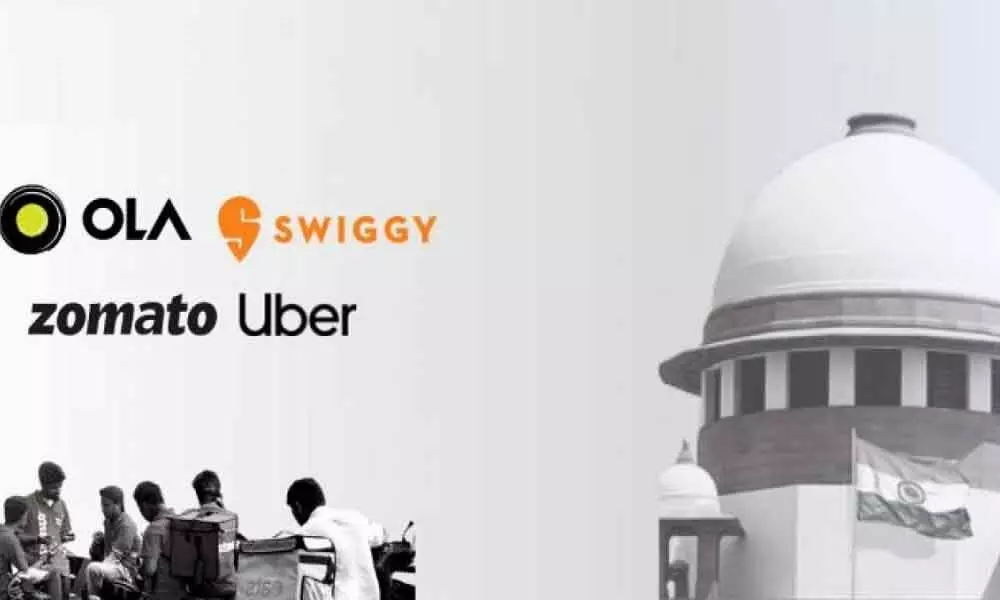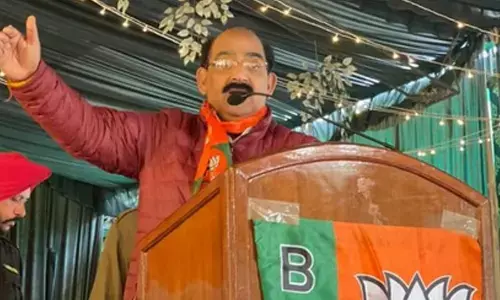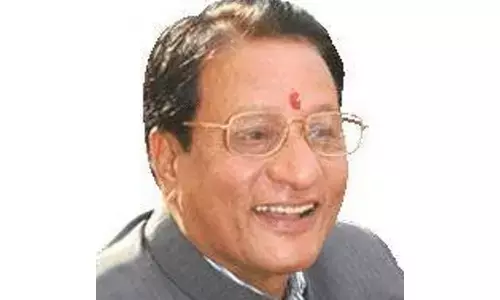How delay in implementation of new social security law hurting gig workers

How delay in implementation of new social security law hurting gig workers
Unicorns must take full responsibility for the workers being employed by them and provide adequate wages and benefits to them
The plea of gig workers for social security benefits being heard in the Supreme Court highlights the fact that employment even in the so-called unicorns of the new economy is fraught with danger. The entire concept of gig workers has originated from developed countries where it was seen as a secondary or freelance job. It was meant to provide flexibility in taking up multiple assignments. For instance, the original concept of cab aggregator Uber was that those who owned cars could use them a few hours every day to earn extra money by operating as a taxi. The reality in developing economies like India is vastly different. Passenger car owners here would not normally hire out their vehicles as taxis. The vehicles used for cab aggregators here have been bought solely for use as taxis and the owners end up as virtual employees of the app-based companies.
It is essential to appreciate this fundamental difference between gig workers in developed economies and in emerging economies like India. In fact, the term "gig worker" does not really apply to those working for app-based companies here. A gig worker is defined a person who works temporary jobs typically in the services sector as an independent contractor or freelancer. In theory, these workers can hire out their services to multiple companies. In actual fact, they have little time after finishing their deliveries or completing their passenger trips for any other type of freelance work. It would be difficult to describe them as independent contractors given their long hours of work with the app-based companies.
The Indian Federation of App Based Transport Workers (IFAT) which has filed the public interest litigation (PIL) in the apex court has sought a declaration from the court that all app-based workers be recognized as unorganized workers. This would be under the provisions of the Unorganised Workers Social Welfare Security Act, 2008. It has also sought health insurance, pension, disability allowance and maternity benefits for all gig workers.
Though the court has sent notices to four major app-based companies – Uber, Ola, Zomato and Swiggy – the issues raised in the PIL are applicable to most of such companies which employ these gig workers. The critical role of these workers emerged during the pandemic when online deliveries became the norm to avoid any contact-based purchasing at regular retail outlets. The delivery workers had to work long hours to meet the demand for rising online orders but, according to IFAT, there has actually been a decline in their incomes over this period. In the case of the cab drivers, it would have been due to the fact that there was a sharp fall in the use of public transport owing to fears of infection. But in the case of delivery workers, it is inexplicable that revenues have fallen, given the enormous expansion of online deliveries of all types of products.
On the positive side, these gig workers have been included in the new Social Security Code that had been passed by Parliament in September last year. It was meant to amend and consolidate all laws relating to social security. It also extended the benefits under these laws to all workers in both the organised and the unorganized sector. It contained a separate chapter on social security for unorganized workers, gig workers and platform workers and envisaged creation of a social security fund for them. Yet the law has still to be notified and implemented even a year after it was brought into existence.
It is intriguing that there has been so much delay in implementing it, given that the government has publicly maintained that it will bring 38 crore unorganized sector workers under the social security net. With the numerous hardships being faced due to the pandemic, especially in the case of contact-intensive sectors, this should have been carried out on a priority basis.
It should also have taken a leaf out of the approach now being taken even in western countries to the app-based companies attitude towards the gig workers. As has been noted in the PIL, even a British court has ruled that the contract between Uber and the employee is a subterfuge and the real relationship is that of an employer and an employee. Similarly in the European Union, a bill is being drafted that will presume some gig workers are employees of the contractors. Given that the government has been trying to follow global norms in terms of issues related to e-commerce companies, a similar approach is needed in regard to gig workers.
The decline in incomes during the pandemic which has been noted by IFAT, also needs to be viewed in the context of reports that the quality of jobs has been declining over this period. This has been one of the findings of the Centre for Monitoring Indian Economy (CMIE) during its periodic employment surveys. As far as the gig workers are concerned, this is an intriguing phenomena as they are linked, even if only as freelance workers, to the most well –funded organizations of the internet economy. The companies cited in the PIL are unicorns, which are defined as privately held start ups with market valuations of over one billion dollars. If even such companies are charged with exploiting their "partners", as these workers are described by them, it is indeed an alarming scenario.
The immediate solution to the problem is for the government to immediately implement the newly created Social Security Code. This will cover the gig workers and should ensure that at least steps are taken towards giving them basic social security benefits. As for the unicorns, both Indian and foreign, they must take full responsibility for the workers being employed by them and provide adequate wages and benefits to them.














